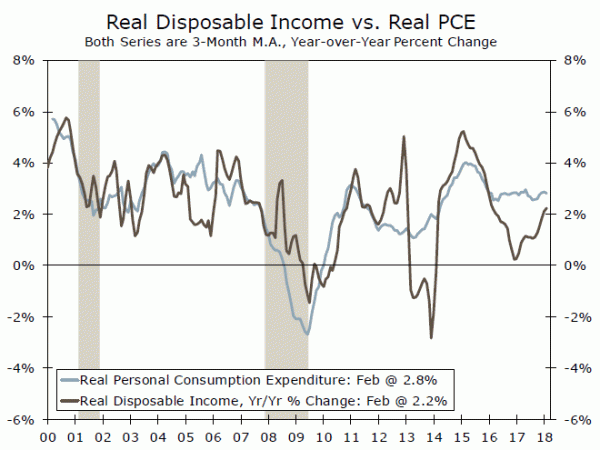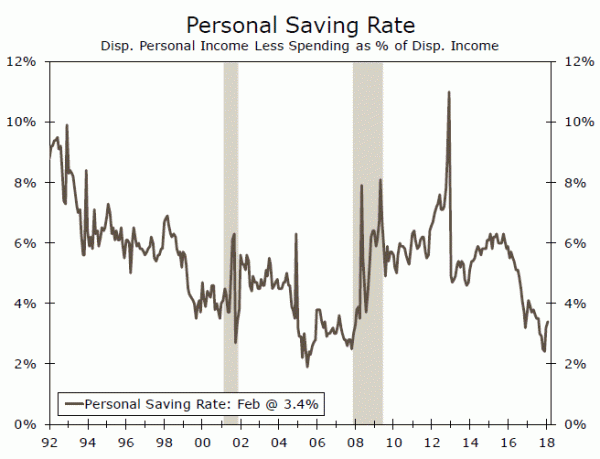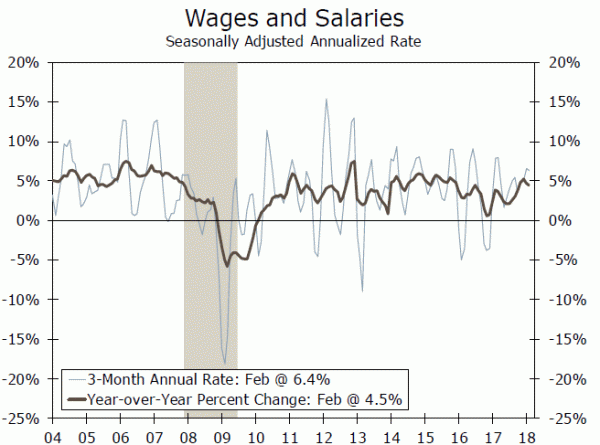Income remained relatively strong in February, but Americans seem to be taking a break from what was a breakneck pace of consumption during the last quarter of 2017. Inflation moved higher on a year-earlier basis.
Americans Seem to be Taking a Break
The revision to Q4 personal consumption expenditures (PCE) released yesterday saw a breakneck pace of consumer demand during the last quarter of 2017, a pace that was not sustainable considering the growth rates of income we saw in late 2016 as well as in 2017. For this, it is not completely surprising that Americans have taken a break during the first quarter of the year. February’s 0.2 percent gain in personal spending after a similar nominal rate increase in January shows a very weak consumer during the first quarter of the year. In fact, in real terms, PCE was revised down from a decline of 0.1 percent in January to a decline of 0.2 percent, while remaining flat in February. If there are no further revisions to these numbers in the months ahead, then March real personal spending will have to show a relatively strong performance to avoid a flat first quarter for PCE, if not a flat-out decline.
We still believe that real consumption will rebound in March, but the recent weather in the Northeast may also have helped depress consumer demand in March. This added to what has been typical of first quarter results since the recovery from the Great Recession, that is, residual seasonality, could make for an interesting reading for first quarter GDP.
Income is Recovering Nicely
Another reason to think that consumption is going to rebound soon is that consumer confidence remains high, and income growth has rebounded nicely over the past several quarters. Personal income grew 0.4 percent in February after a similar increase in January. Real disposable income, on the other hand, increased by 0.6 percent in January and by 0.2 percent in February as the effects of tax reform dissipated. However, income from wages and salaries remained strong, growing $41.1 billion in February after a $50.0 billion increase in January. But what was more important was that wages and salaries from goods-producing industries increased $24.8 billion in the month after an increase of $13.2 billion in January.
Meanwhile, proprietors’ income, which had been weak in December and January, recovered in February and increased at a $15.3 billion annual rate. Personal income receipts on assets were also strong, increasing $7.0 billion in February after a decline of $4.8 billion in January. While personal interest income declined $1.5 billion, personal dividend income surged $8.6 billion at an annual rate.
The saving rate increased to 3.4 percent in February, while growth in wages and salaries slowed down a bit on a year-earlier basis, to 4.5 percent compared to 4.7 percent in January. Meanwhile, inflation moderated on a month-on-month basis but moved higher on a year-earlier basis.



